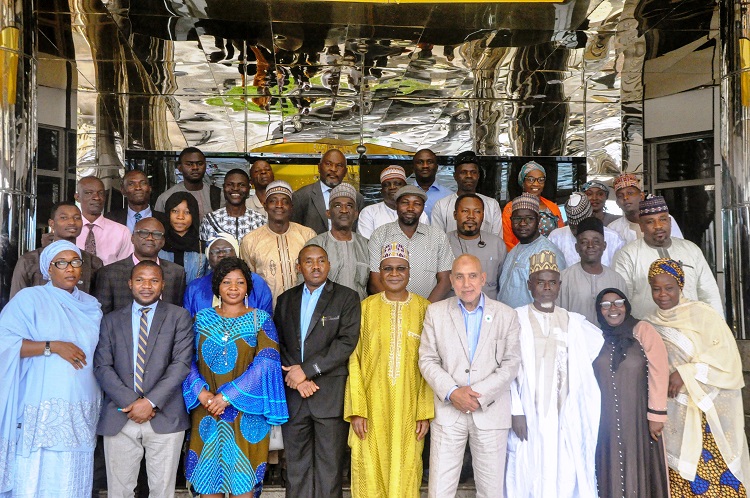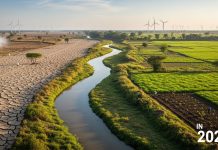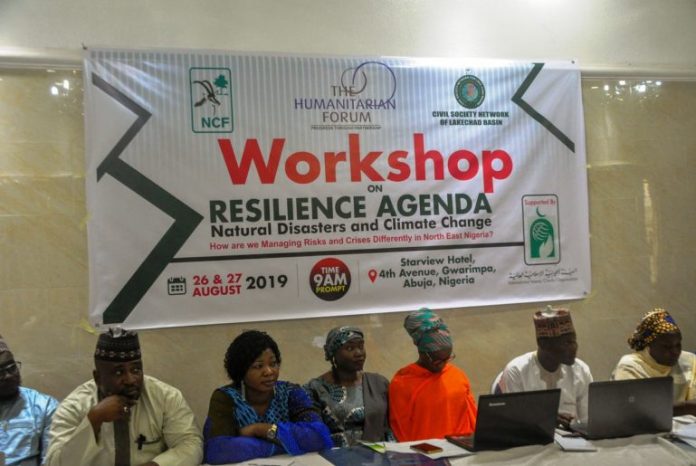Coalitions of environmentalists have asked the Federal Government to address the challenges of climate change and environmental degradation in the country, noting that these are the source of humanitarian crises in the North-East and other parts of the country.
The Nigerian Conservation Foundation, Civil Society Network for the Lake Chad Basin in the North East Nigeria, the Humanitarian Forum, UK with the support of the International Islamic Charity Organisation made the call at a two-day workshop in Abuja, themed, ‘Resilience agenda: Natural disasters and climate change – How are we managing risks and crises differently in North-East Nigeria?’
Along with about 20 civil society organisations from the six states in North-Nigeria, representatives of government agencies, UN agencies, international NGOs and security agencies, the gathering examined climate change as a risk factor for disaster.
The Director General of NCF, Dr Muhtari Aminu-Kano said climate change and forms of environmental degradation were at the root of the humanitarian crises in the North-East such as shrinking of the Lake Chad, drought and desertification, deforestation and land degradation.

The President of Civil Society Network for the Lake Chad Basin, Ambassador Shehu Ahmed, emphasised the need for the Federal Government, international organisations and corporate citizens to rise up to help.
“Disasters and climate change impact on lives, livelihoods and economic development. People living in poor and developing countries bear the highest risk for disaster,” Ahmed said.
“Impacts of disasters and climate change set back and undermine development efforts. Climate change is causing an increase in frequency and intensity of certain weather-related disaster events. These are some of the reasons we should take action immediately.”
He stated that disasters and climate change could impact on lives, livelihoods and economic development, adding that people living in poor and developing countries were bearing the highest risk of disasters.
The Country Director of IICO, Abdulwasea Adesina, also made an appeal to the participants not to end the discussion at the workshop but implement all the proposals from different relevant quarters.

















